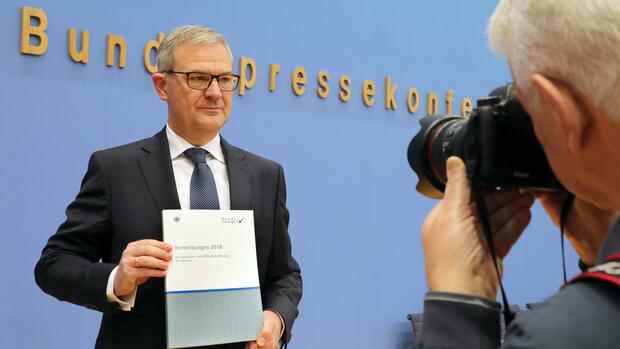“The financial situation of the federal government is critical”, stated the Federal Audit Office in its new “inventory of the state of the federal finances” for the 20th electoral term. “Long-term financing on credit is not a viable alternative and is unsuitable for overcoming the challenges ahead.”
This includes, among other things, the plan criticized by the Federal Audit Office to expand KfW. It is also being discussed that the federal government will again borrow heavily in 2022 in order to build up a reserve to deal with the climate crisis. The establishment of public investment funds that run outside the debt brake is also being discussed. Likewise, the expansion of public companies.
Top jobs of the day
Find the best jobs now and
be notified by email.
The Federal Court of Auditors considers these “attempts to circumvent it to be constitutionally questionable”. The constitution-giver “deliberately included the exclusion of loan financing and thus new borrowing through secondary budgets in the Basic Law in order to prevent ordinary legislators from circumventing the debt rule,” it says in the inventory.
The Federal Audit Office continues to write that “regardless of their legal structure, no loan financing should take place via secondary budgets without crediting them against the debt rule”.
However, this view is controversial. There are also legal opinions that consider the creation of investment funds to be constitutional.
Auditors also criticize the outgoing government’s budgetary policy
The Federal Court of Auditors already considers the budget policy of the still managing grand coalition to be “constitutionally extremely dubious”. The planned net borrowing for 2022 could have been significantly lower if the federal government had drawn on the reserve of 48.2 billion euros, which was still in the federal budget from the time of the refugee crisis, but which Federal Finance Minister Olaf Scholz (SPD) would not touch until 2023 want.
In the opinion of the Federal Audit Office, however, reforms indicated under constitutional law were implemented too late or only inadequately. This includes the only partial abolition of the solidarity surcharge. The unlimited continuation for the ten percent of top earners is subject to “high legal risks”, warns the Court of Auditors. The traffic lights had also agreed not to abolish the remaining solos.
Instead of resorting to tricks in budget policy, the Federal Audit Office is calling for rigorous compliance with the debt brake. It has proven itself and also prevents unnecessary investments.
“Abolishing the debt rule now or reforming it in such a way that it opens loopholes for additional loans and thus for additional national debt would burden the coming generations even more and would be tantamount to a financial policy capitulation,” said the Federal Audit Office.
Warning of rising interest rates
Instead of circumventing the debt brake, Federal Audit Office President Scheller is demanding that the future federal government conduct an honest assessment, effective structural reforms and resolute priorities. “Because there is not money for everything,” said Scheller, who as President of the Federal Audit Office is also the Federal Commissioner for Economic Efficiency in Administration.
Waiting and hoping for better economic times were not enough to get the federal budget back on track. Consolidation for free like after the financial crisis in 2008 will not be repeated.
If, after the financial crisis, the federal government benefited from falling interest rates and the associated cheaper borrowing, “the risk of interest rate changes is now growing significantly,” according to the Federal Audit Office. For the 2022 budget, the planned interest expenditure of EUR 13.9 billion is estimated to be more than twice as high as the interest expenditure in 2020 of EUR 6.5 billion.
Even the current tax estimate, which is likely to forecast an increase of around 160 billion for the state by 2025, would not be sufficient to close the existing funding gaps in the federal budget by the middle of the decade. The federal government sees itself exposed to an abundance of financial problems and challenges, “for which no solution concepts have yet been found,” said the Court of Auditors.
Reduction of tax subsidies increases scope
The Federal Audit Office makes various suggestions as to how the imbalance in the federal budget that it believes can be eliminated. The auditors are calling for “a spending moratorium, according to which counter-financing must be ensured for each new measure by ending other measures”.
In addition, federal subsidies to social security would have to be stabilized and support programs only financed if their expected effectiveness was clearly proven. Overall, it would require a task criticism “with the aim of concentrating on the core constitutional tasks of the federal government”.
In order to improve the revenue base, the Federal Audit Office proposes the reduction of tax subsidies and a more effective fight against tax avoidance.
The Federal Court of Auditors demands that legitimate demands for better and faster climate protection should not be played off against the debt rule. Stable, sustainable state finances and climate protection are two sides of the same coin: “They should enable future generations to live independently in an environment that is worth living in and provide financial leeway to shape the future economically.”
More: 160 billion more revenue for the state – traffic lights can distribute additional money
